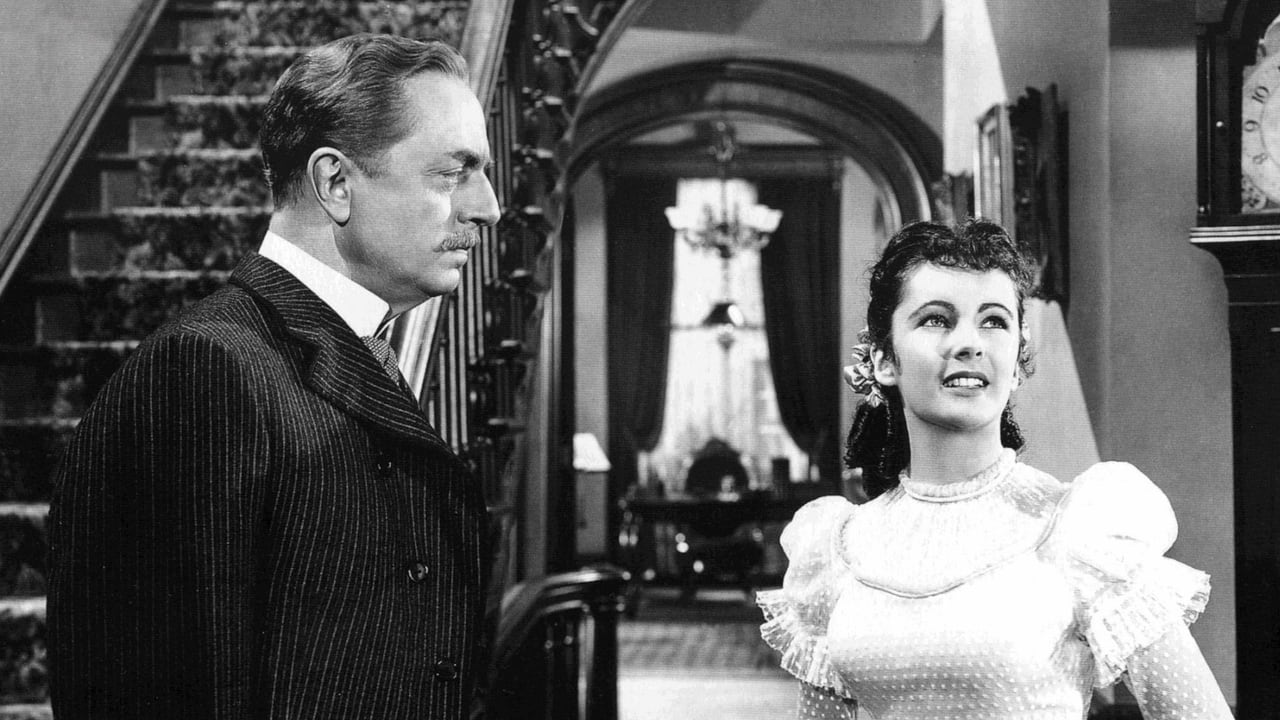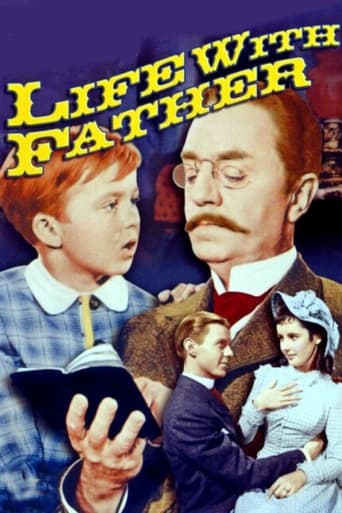

I like the storyline of this show,it attract me so much
... View MoreThe greatest movie ever made..!
... View MoreThat was an excellent one.
... View MoreIt's hard to see any effort in the film. There's no comedy to speak of, no real drama and, worst of all.
... View MoreWife portrayed as totally dumb. She had no job. She had control over no money. She almost said her husband was the smartest, and that she was stupid. Archie and Edith.Husband didn't want her to spend one dollar to hear a speech from a modern woman who would be discussing women's situation in the eighteen eighties.Good acting. I am giving it eight out of ten because of the portrayal of attitudes of the time. This is a wealthy family, of white WASPS who are Episcopalian mostly church goers. A friend is Methodist, in whose church there are slight Protestant Christian differences from the Episcopalians.Elizabeth Taylor gets third billing. She is ridiculed by other reviewers here, but I think she did very well. Her character is forward for a female of the time, and her romantic interest is naïve and selfish. He is trying to emulate the personality of his curmudgeon of a father; the father of this film.Irene Dunne was a great singer; witness her voice in Show Boat or was it dubbed? She hums a few bars here, at least in the version I saw.Powell was not just Nick Charles. He was also Florenz Ziegfeld. He was also Godfrey in My Man Godfrey, in which he is a bum who becomes a butler; he is the Forgotten Man of the Great Depression.Here, he is the cantankerous curmudgeon, the name of which I have mentioned several times. He does not respect women, and he talks down to them. He teaches his sons that women are ignorant, backward crybabies who would never carry the weight of the world on their shoulders.White WASPS are the main characters. They are the elite. Irish women, or even recent immigrants, are portrayed as airheads who cannot carry trays as maids, who have nothing is their ditzy little heads.ZaSu Pitts does a turn here, of a cousin. She is not her usual comedic self. She is more droll and lifeless than I have seen her in other performances.Martin Milner as a young lad is interesting. He later appeared in the Adam Twelve TV series, as a police officer.Do not call this film dated. It was made after World War Two, when the world was crying for sweet nostalgia, a world of Gilded Age niceties and cooks and housemaids. The audience was tired of movies about killing and fighting.The long running play on which this film is based ran from pre World War Two to afterward, actually starting in the later years of the Great Depression. The play and film must have both been uplifting to audiences during dark and gloomy times.Eight out of ten.
... View MoreIf you watch this film because you adore the urbane and witty William Powell, you're going to be sorely disappointed. In this film he is a stodgy old tyrant (well, that may be overstating it a bit, but not much). So for me, this rather famous movie was rather disappointing. And it didn't end with Powell; I was equally disappointed with Irene Dunne. Oh, it's not their fault. It's just the nature of the characters they play here.The cast is interesting. Elizabeth Taylor is along as the female romantic interest for teenager Jimmy Lydon ("Henry! Henry Aldrich! Coming mother!"). Edmund Gwenn is here as a minister. Zazu Pitts has a small part. Martin Milner ("Route 66") plays one of the middle sons. And, there are a number of other fine character actors.Staid. That's the perfect word to describe this film. This film has its moments, but they are few and far between. And, usually I like this type of film.Ah well. Maybe it's just me. But I won't want to watch this again.
... View MoreWilliam Powell and Irene Dunne with Elizabeth Taylor and some other people. On the up side, lots of practical family issues are dealt with through character development, and this is where the fun lies.Powell is the patriarch of an all-red-headed WASP family. He is a pain-in-the-butt overbearing dictator but otherwise lovable husband/father. Every time he turns around he whines about something, never content. This is used for humor, but it goes way overboard. There are scenes of all his kids (and perhaps also his wife) sitting down on one long bench, all lined up nicely, and facing him. "Father" stands across the room and glares at them. This image reminded me of a bunch of rubber ducks lined up in a carnival shooting gallery. Ughh. Quite a chore to get through. I dare you to watch this movie for more than 10 consecutive minutes at a time. Really! It is two hours in length, and seems to get good maybe about 3/4 of the way through.Powell's "Father" character says he will get baptized to save a situation, but later isn't interested. Will he get baptized by the end of the movie? Will he ever stop nitpicking everyone in his home? Will he ever tell his wife he loves her?? What is the latest maid's name, and what happened to the one that was working for them just yesterday? Did her uniform not fit, just like the maid that quit the day before that?? What formalities and drama. And it is in Technicolor too, probably so you can see that they all have red hair. Woo-hoo. I am a fan of B&W, so B&W with lots of shadows and eerie overtones might have been better though I think.I am giving it a 6/10 for all the attention to commotion and nonsense. Sort of like Grand Hotel in a way but not really. :) Film it in B&W and I would have given it a 7/10. Yes, the color does detract from it for me. I thought it was going to be a B&W feature like the picture you see here on IMDb. :)
... View MoreIn his third and final Oscar nomination, William Powell was nominated for playing the bellowing and lovable 19th century domestic tyrant Clarence Day, Sr. in Life With Father. If he had to lose I'm sure Powell was glad it was to his very good friend in real life Ronald Colman for A Double Life. Still with that strange flaming red hair on top of his familiar features, Powell imprints his own personality on the leading role of the longest running play on Broadway up to that time.Based on the recollections of Clarence Day, Jr. as played by Jimmy Lydon here, Life With Father ran for eight years on Broadway for 3447 performances. It was brought to the stage by Howard Lindsay and his two partners, writing partner Russell Crouse who adapted Day's work to the stage and life partner Dorothy Stickney who with her husband got their career roles on Broadway. The play ran from 1939 through 1947 taking America right through World War II. The time that it was written and presented to the public may account for its popularity as the public might just have wanted reassurance of American values at that critical point.As Lindsay and Stickney had no kind of movie box office, Warner Brothers decided to acquire William Powell for the lead and cast Irene Dunne as the wise mother who has learned just the right way to handle her husband and inevitably get what she wants. Powell is a man who thinks when all else has failed, he can bellow his way through any situation. My favorite line in the play is when he tries to hire a maid and that title quote is when he's asked for references.Warner paid a lot in loan outs for this film. Irene Dunne was not a contract employee of his studio and Elizabeth Taylor was also borrowed from MGM for the small, decorative part of a cousin that gets Jimmy Lydon and Martin Milner's hormones in an uproar. The part that Taylor plays was originated on Broadway by another future film star, Teresa Wright.Incidentally Martin Milner reminisced many years later about the film and said of all the boys and of course Powell, he was the only natural redhead among the lot.Edmund Gwenn fresh from an Oscar himself for Miracle on 34th Street plays the Episcopalian minister who is trying to get a large contribution from Powell for a new church. Their discussion is also a highlight of the play and the fact that Powell had never been baptized is also a subject of a lot of humor.Father still had life well into the Fifties with a television series adapted from the play that starred Leon Ames as dear old dad.The play, the film still have a lot of character in it.
... View More